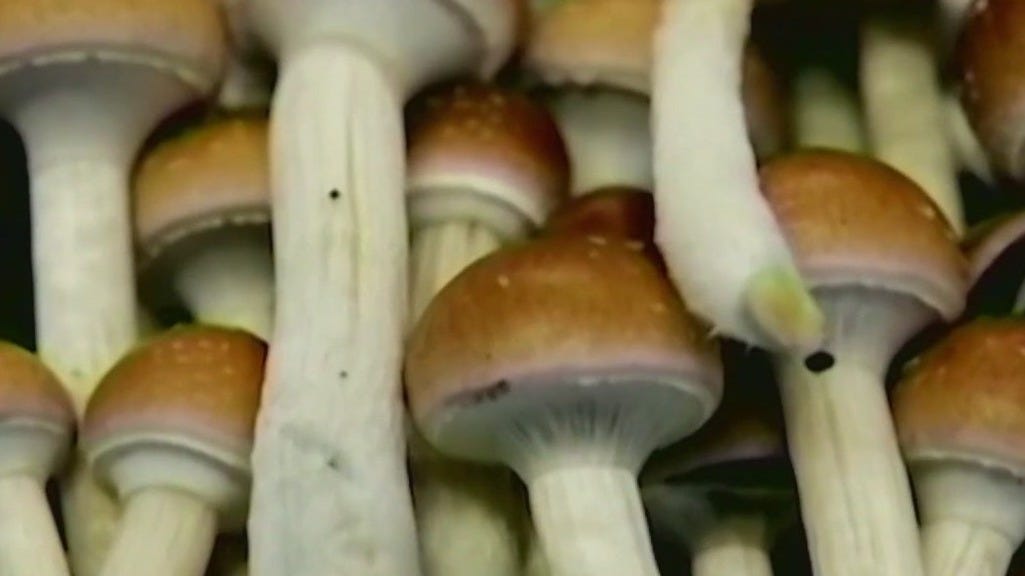Psychedelics have promise. But after losing my son, we can't ignore the dangers. | Opinion
Psychedelics, while potentially therapeutic, are also powerful, unpredictable and not right for everyone. I know this firsthand.

Health and Human Services Secretary Robert F. Kennedy Jr. recently sat in a congressional hearing to discuss departmental cuts. But what caught the attention of many were his comments about psychedelics, which he has long and publicly supported.
Kennedy later posted on X: “We’re accelerating clinical trials (of psychedelics at the Food and Drug Administration) with urgency – and working to ensure safe, science-based access within 12 months.”
This suggestion was made even more concrete on July 22, when the FDA began accepting applications for its new accelerated-approval program for drugs that address national health priorities, like mental health.
Many see a turning point: a chance to accelerate research, expand access and legitimize the use of psychedelics ‒ not only in medicine but also in culture.
There is real promise in these substances. Veterans report healing from post-traumatic stress disorder, cancer patients speak of end-of-life peace, and some people with depression or addiction find relief where nothing else helped. But as access grows and the public becomes more curious – if not enthusiastic – we must urgently pair this moment with clear-eyed public health safeguards and education.
Because these substances, while potentially therapeutic, are also powerful, unpredictable and not right for everyone.
I know this firsthand.
In 2020, my 21-year-old son, Will, died in an accident linked to psychedelic-induced delusions. He was a college senior – curious, thoughtful and much loved. He believed what many of his peers believe: that psychedelics are “safe,” “natural” and “the least harmful drug.” That night, every safety net failed – or wasn’t there in the first place.
What do psychedelic drugs do? Know the facts 'Before You Trip.'
Today, psychedelics are moving from subculture to mainstream. More than 10 million American adults used a psychedelic in the past year.
Use of psychedelics among 19- to 30-year-olds has more than doubled in the past decade, and it has surged sevenfold among adults ages 35 to 50, numbers that represent historically high levels.
Yet, clinical trials and legal therapeutic use represent only a small fraction of that. An increasing number of people report taking these drugs outside of medical settings for recreation, to improve well-being or for spiritual or self-exploration.
Many are first-time users, ostensibly beckoned by the headlines but often lacking community knowledge or harm reduction guidance.
The contemporary media narrative has emphasized breakthrough therapies and personal transformations. But it rarely mentions contraindications, risk factors that make use inadvisable – like certain mental health conditions – or the need for supervision, preparation and integration.
That’s especially concerning for young people, who often hear only one side of the story.
We’ve gone from “Just Say No” to near silence. My Gen Z kids never had drug education that reflected today’s landscape. They came of age amid cannabis legalization messaging that emphasized it as natural and healing. Now, psychedelics are being framed similarly – without balanced drug education to match. That leaves young people to navigate in the dark.
We can do better. A nonprofit coalition recently launched Before You Trip, a public health campaign led by Generation Z voices, as a pilot project in Colorado – where psilocybin (hallucinogenic mushrooms) and other psychedelics were decriminalized in 2022.
The campaign encourages young adults to pause, learn and reflect before deciding whether psychedelics are right for them. It offers clear, accessible and research-backed guidance on effects, contraindications and risk-reduction practices. The campaign promotes open dialogue, critical thinking and informed decision-making about these substances.
It’s about honest, harm reduction-oriented education, delivered in a voice that meets young people where they are, on social platforms. More is needed, but it’s a building block.
In addition to education, we also need public health infrastructure: trained first responders, accessible crisis resources and support, widespread harm reduction and better data collection.
Too often, psychedelic-related crises are met with criminalization or stigma rather than care and understanding.
Psychedelic drugs can offer healing, but they still come with risks
I think often about a moment that haunts me. It was when I caught Will vaping during a college break. I panicked. I got angry. I didn’t ask questions or try to understand. I shut down the conversation because of fear and because I didn't have the tools to approach it more skillfully.
That could have been a moment to build trust. I wish I had used it to begin an honest dialogue. We now have an opportunity to open that dialogue – with families, communities and the public at large.
Psychedelics can indeed offer healing, but they also bring complexity and risk.
About 1 in 10 people who have used a classic psychedelic − such as lysergic acid diethylamide (LSD), mescaline or psilocybin − report having experienced an adverse event related to their use. And of those who used a classic psychedelic, 2.6% report having sought post-trip psychiatric, psychological or medical care.
As these substances are scaled up in the population, these proportions will represent several hundreds of thousands of people. As public interest and use increase, we should care very much about improving outcomes and reducing preventable harms.
Let’s build a culture of accountability, care and curiosity – not one of hype or silence. The future of psychedelics depends not only on access but also on responsibility. Let’s make sure we’re ready for both.
Kristin Nash, MPH, is a public health professional specializing in harm reduction and health communication. She is the executive director of the William G. Nash Foundation and cofounder of the Coalition for Psychedelic Safety and Education (CPSE).